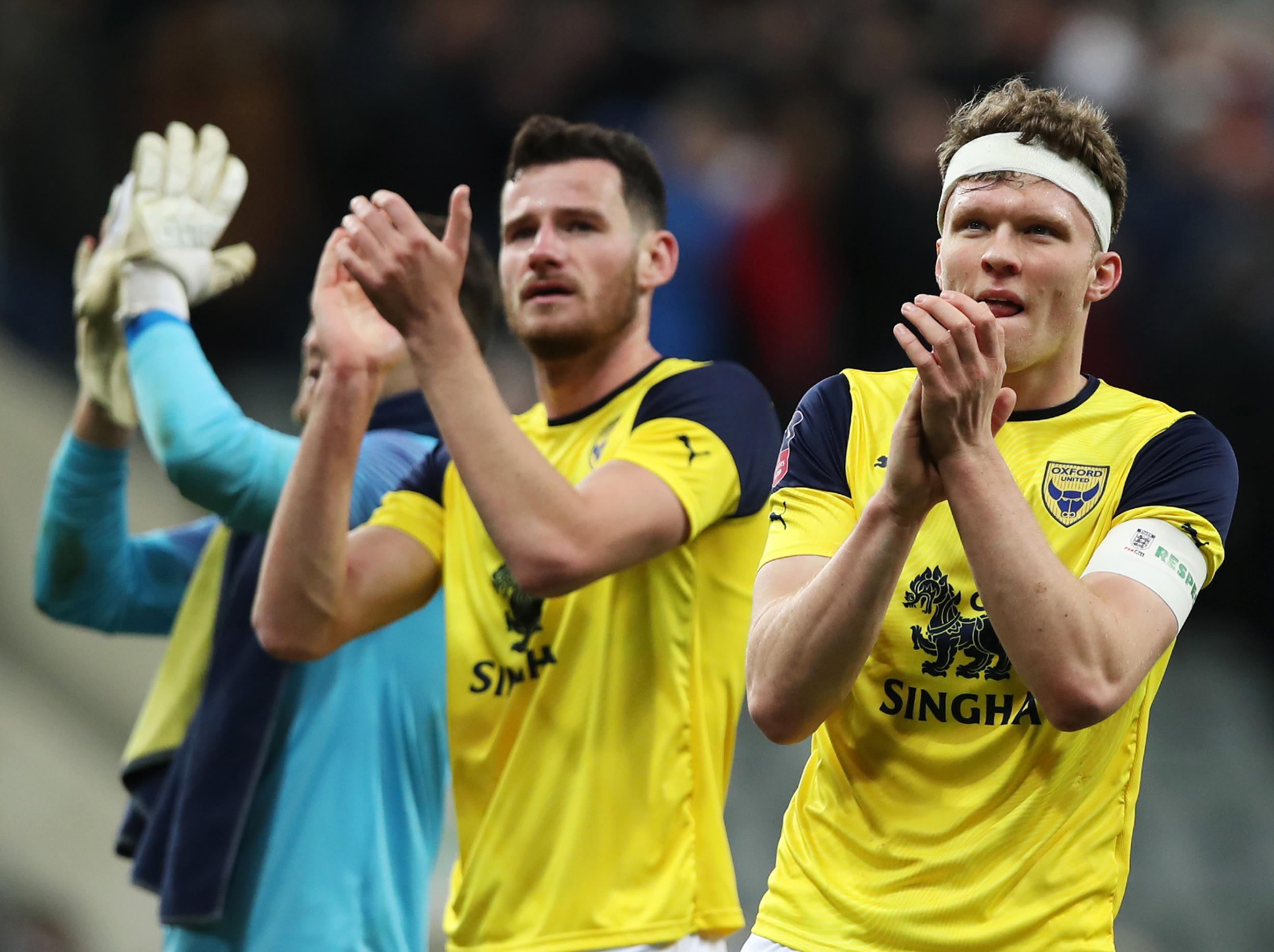Liverpool FA Cup row should not detract from fact that English football has already botched its winter break plan
If a winter rest was seen as such a crucial development, why was the break pushed through with an asterisk attached and no real remedy for the main issues?

Your support helps us to tell the story
From reproductive rights to climate change to Big Tech, The Independent is on the ground when the story is developing. Whether it's investigating the financials of Elon Musk's pro-Trump PAC or producing our latest documentary, 'The A Word', which shines a light on the American women fighting for reproductive rights, we know how important it is to parse out the facts from the messaging.
At such a critical moment in US history, we need reporters on the ground. Your donation allows us to keep sending journalists to speak to both sides of the story.
The Independent is trusted by Americans across the entire political spectrum. And unlike many other quality news outlets, we choose not to lock Americans out of our reporting and analysis with paywalls. We believe quality journalism should be available to everyone, paid for by those who can afford it.
Your support makes all the difference.Through the fog of hysteria, modern football’s oxygen and often the shield authorities hide behind, are important questions.
Park the labelling of Jurgen Klopp as a “disgrace” for “disrespecting tradition,” “killing the FA Cup” or whichever way you want to slice it.
Instead, consider the following: Why did the Premier League, EFL and Football Association agree to a mid-season break – described as “a valuable addition” for players to allow “appropriate recovery time and have the positive impact on individual and team performance that it is designed to deliver” – with an asterisk attached?
If offering a rest was seen as such a critical development, why did clubs have to accept months in advance – with zero clue whether it would affect them or not – that they’d cede “much-needed” time off if facing an FA Cup fourth-round replay?
This is not about Liverpool kicking up a fuss as their interval will be interrupted by hosting Shrewsbury at Anfield after spurning a two-goal cushion at the League One side. The distinctly duff performance in Shropshire is, after all, solely their fault.
It’s not about Southampton, Tottenham Hotspur and Newcastle also having their break botched by a replay.
That simply scratches the surface. If there was a realisation that a “very congested fixture calendar” needed to be remedied as highlighted by former FA chief executive Martin Glenn, why wasn’t there a genuine attempt to lesson games extending down to the EFL?
Why was there no plan to actually alleviate some of the strain during the most intensive stanza of the season in December and January?
Is there a need for two domestic tournaments? Why are there so many international friendlies?
Do we want more games or more quality?
Why can every other big European league navigate a proper winter interval with no hassle, while England makes such a hash of its paltry one?
Why has there been a slant of everybody wins in this scenario, when if you actually read the fine print, there are so many who don’t?
The FA Cup will go straight to extra-time and penalties in the fifth round so why wasn’t that brought forward?
Contrary to the narrative, eradicating replays is not just the wish of the super wealthy. “We’re now going to play nine games in February with a squad of 20 players,” Oxford United boss Karl Robinson said after the goalless stalemate with Newcastle.
“We don’t have the funds or resources to do that.
“It would be better for everyone to be finished. Give us an outcome immediately and not give us a backlog of games in February and going into March. We’re going to hit over 60 games this season, which is ludicrous. My players’ bodies are at breaking point. It’s not fair.”
Mark Bowen, the Reading manager, admitted after the 1-1 draw with Cardiff City that “we didn’t want a replay. A lot of teams throughout the leagues get stretched by replays.”

Sure, there are clubs that rely on the extra payday. Shrewsbury manager Sam Ricketts has pointed out how an estimated £500,000 windfall can be used for better draining at the training ground and to enhance the analysis department.
Do we really want replays to be “a financial lifeline” as Tranmere Rovers vice-chair Nicola Palios termed it?
Her husband, Mark, the former FA CEO who now owns the Merseyside club, previously told The Independent: “If gates are your sole limit in terms of the potential of a club then you will struggle.”
Should we not rather expect the Premier League’s solidarity payments to EFL clubs to be much greater?
Should we not expect stronger controls from the bodies to prevent instances like Steve Dale’s takeover of Bury for £1 in 2018?
Should we not expect those in charge of football in this country to care as much about the perils through the divisions as they do about the head-spinning profits in the top flight?

It is not on Klopp or Pep Guardiola or any other manager to unearth solutions or persistently flag these issues.
The pair have addressed the absence of a joined-up approach from those governing the game due to competing interests and Palios co-signed that criticism.
“There isn’t one body strong enough to be able to pull it all together at this time,” he said. “There’s no holistic approach. That’s the concern.
“There is an inherent conservatism and traditionalism in the game. You see that in how a lot of the decisions are based on emotions, not facts.”
“The culture is exacerbated by a not-fit-for-purpose structure.
“That is, the fragmentation of the game where there are so many different bodies – the FA, the PFA, the EFL – each with a competing interest. That means you come up with sub-optimal solutions.”
And when hysteria dominates the coverage, is there really a need for them to provide better resolutions?
Join our commenting forum
Join thought-provoking conversations, follow other Independent readers and see their replies
0Comments